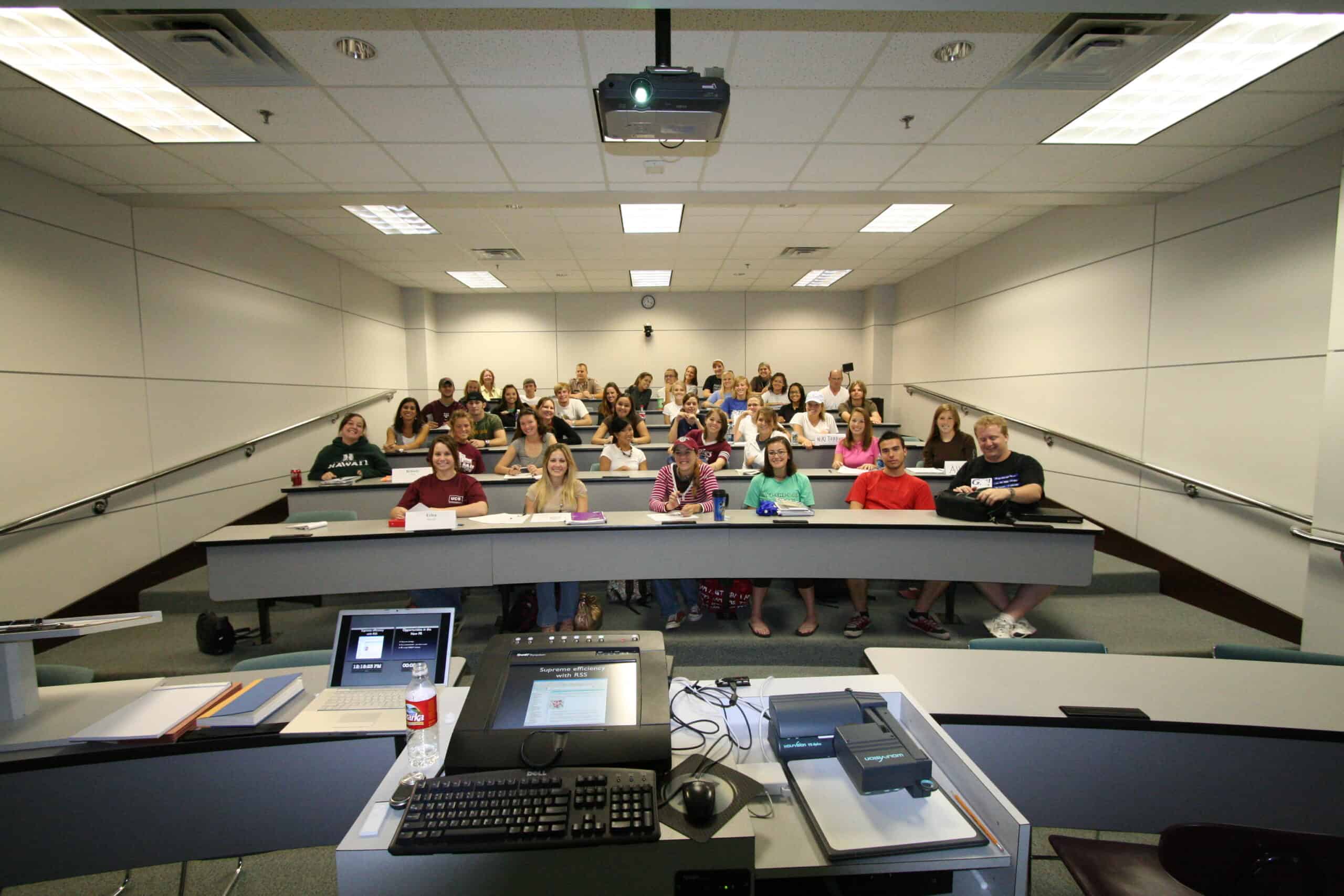
In the hierarchy of academic degrees awarded in the United States, professional and doctoral degrees are at the top. Covering a wide range of highly-specialized fields of study, including architecture, computer science, law, medicine, philosophy, and physics, these degree programs often last for over half a decade – and their successful completion demands a high level of both interest and aptitude.
Not only rigorous and time consuming, professional and doctoral degree programs are also expensive. According to the U.S. Department of Education, the average cost of a doctorate is just under $151,000, while some professional degree programs, such as medical school or law school, cost over $200,000. These expenses do not include the opportunity costs of forgoing a full-time job during the period of enrollment.
While the upfront costs of both time and money for doctoral or professional degree programs is high, so too is the potential pay off. According to the latest data from the Bureau of Labor Statistics, most full-time workers with these degrees earn over $108,000 a year, nearly $34,000 more than the median salary among those with only a bachelor’s degree. (These are the college majors most likely to earn six figure salaries.)
Of course, for many, if not most doctoral or professional degree candidates, higher earning potential is not the only consideration. And many of those who choose a particular Ph.D. or professional degree program for reasons other than money may find themselves in careers that pay far less than most others with similar educational requirements.
Using 2022 median annual wage data from the U.S. Bureau of Labor Statistics, 24/7 Wall St. identified the lowest paying jobs that require a Ph.D. or professional degree.
Among the 40 occupations on this list, the typical, full-time worker earns anywhere from $103,260 a year to $57,490 – or between about $4,700 and $50,100 less than the typical worker with a doctoral or professional degree. (Here is a look at the 25 lowest paying college majors.)
These jobs fall into one of four broad categories: life, physical, and social sciences; legal occupations; educational instruction and library occupations; and health care practitioners and technical occupations. The vast majority of them are postsecondary teaching positions.
Jobs in the private sector tend to pay more than jobs within the government – and many of these occupations are concentrated in the public sector. Across all occupations, local, state, and federal government positions account for 14.5% of employment, according to the BLS. In all but four of the jobs on this list, public sector employment exceeds the national average – including 32 occupations where over 50% of the workforce are employed by the government.
Here are the lowest paying jobs that require a PhD.
40. Veterinarians

- Median annual wage: $103,260
- Total employment: 78,810
- Projected employment change, 2022 to 2032: +19.7%
- Employment by sector: Public 3.2%; private 96.8%
39. Postsecondary Health Specialties Teachers

- Median annual wage: $100,300
- Total employment: 207,700
- Projected employment change, 2022 to 2032: +19.1%
- Employment by sector: Public 54.3%; private 45.7%
38. Medical Scientists, Except Epidemiologists

- Median annual wage: $99,930
- Total employment: 110,550
- Projected employment change, 2022 to 2032: +9.8%
- Employment by sector: Public 17.6%; private 82.4%
37. Postsecondary Atmospheric, Earth, Marine, and Space Sciences Teachers

- Median annual wage: $97,770
- Total employment: 11,150
- Projected employment change, 2022 to 2032: +3.6%
- Employment by sector: Public 72.3%; private 27.7%
36. Physical Therapists

- Median annual wage: $97,720
- Total employment: 229,740
- Projected employment change, 2022 to 2032: +15.1%
- Employment by sector: Public 8.7%; private 91.3%
35. Postsecondary Forestry and Conservation Science Teachers

- Median annual wage: $96,500
- Total employment: 1,270
- Projected employment change, 2022 to 2032: +5.2%
- Employment by sector: Public 94.5%; private 5.5%
34. Administrative Law Judges, Adjudicators, and Hearing Officers

- Median annual wage: $94,990
- Total employment: 12,490
- Projected employment change, 2022 to 2032: +1.1%
- Employment by sector: Public 100.0%; private 0.0%
33. Postsecondary Architecture Teachers

- Median annual wage: $93,220
- Total employment: 6,420
- Projected employment change, 2022 to 2032: +3.8%
- Employment by sector: Public 58.3%; private 41.7%
32. Clinical and Counseling Psychologists

- Median annual wage: $90,130
- Total employment: 62,880
- Projected employment change, 2022 to 2032: +11.4%
- Employment by sector: Public 16.1%; private 83.9%
31. Postsecondary Business Teachers

- Median annual wage: $88,790
- Total employment: 78,410
- Projected employment change, 2022 to 2032: +6.9%
- Employment by sector: Public 55.3%; private 44.7%
30. Postsecondary Physics Teachers

- Median annual wage: $86,550
- Total employment: 12,860
- Projected employment change, 2022 to 2032: +3.8%
- Employment by sector: Public 67.2%; private 32.8%
29. Postsecondary Agricultural Sciences Teachers

- Median annual wage: $85,860
- Total employment: 8,240
- Projected employment change, 2022 to 2032: +4.8%
- Employment by sector: Public 93.7%; private 6.3%
28. Postsecondary Anthropology and Archeology Teachers

- Median annual wage: $85,000
- Total employment: 4,930
- Projected employment change, 2022 to 2032: +4.0%
- Employment by sector: Public 67.7%; private 32.3%
27. Postsecondary Computer Science Teachers

- Median annual wage: $84,760
- Total employment: 33,870
- Projected employment change, 2022 to 2032: +5.3%
- Employment by sector: Public 66.6%; private 33.4%
26. Postsecondary Political Science Teachers

- Median annual wage: $83,770
- Total employment: 15,190
- Projected employment change, 2022 to 2032: +3.7%
- Employment by sector: Public 59.0%; private 41.0%
25. Postsecondary Environmental Science Teachers

- Median annual wage: $83,040
- Total employment: 6,240
- Projected employment change, 2022 to 2032: +4.2%
- Employment by sector: Public 70.6%; private 29.4%
24. Audiologists

- Median annual wage: $82,680
- Total employment: 13,940
- Projected employment change, 2022 to 2032: +10.6%
- Employment by sector: Public 11.5%; private 88.5%
23. Postsecondary Geography Teachers

- Median annual wage: $81,920
- Total employment: 3,340
- Projected employment change, 2022 to 2032: +4.4%
- Employment by sector: Public 85.0%; private 15.0%
22. Postsecondary Biological Science Teachers

- Median annual wage: $81,650
- Total employment: 49,920
- Projected employment change, 2022 to 2032: +8.6%
- Employment by sector: Public 64.8%; private 35.2%
21. Postsecondary Area, Ethnic, and Cultural Studies Teachers

- Median annual wage: $80,910
- Total employment: 9,340
- Projected employment change, 2022 to 2032: +3.9%
- Employment by sector: Public 58.2%; private 41.8%
20. Postsecondary Chemistry Teachers

- Median annual wage: $80,720
- Total employment: 20,650
- Projected employment change, 2022 to 2032: +3.5%
- Employment by sector: Public 63.7%; private 36.3%
19. Postsecondary History Teachers

- Median annual wage: $79,400
- Total employment: 18,250
- Projected employment change, 2022 to 2032: +1.3%
- Employment by sector: Public 64.5%; private 35.5%
18. Postsecondary Sociology Teachers

- Median annual wage: $78,970
- Total employment: 12,030
- Projected employment change, 2022 to 2032: +3.7%
- Employment by sector: Public 68.2%; private 31.8%
17. Postsecondary Psychology Teachers

- Median annual wage: $78,810
- Total employment: 40,050
- Projected employment change, 2022 to 2032: +5.2%
- Employment by sector: Public 55.3%; private 44.7%
16. Postsecondary Philosophy and Religion Teachers

- Median annual wage: $78,780
- Total employment: 21,620
- Projected employment change, 2022 to 2032: +2.7%
- Employment by sector: Public 29.4%; private 70.6%
15. Postsecondary Nursing Instructors and Teachers

- Median annual wage: $78,580
- Total employment: 69,190
- Projected employment change, 2022 to 2032: +18.2%
- Employment by sector: Public 52.6%; private 47.4%
14. Postsecondary Mathematical Science Teachers

- Median annual wage: $77,420
- Total employment: 46,560
- Projected employment change, 2022 to 2032: +3.2%
- Employment by sector: Public 77.5%; private 22.5%
13. Postsecondary Teachers

- Median annual wage: $76,920
- Total employment: 214,520
- Projected employment change, 2022 to 2032: +3.6%
- Employment by sector: N/A
12. Postsecondary Family and Consumer Sciences Teachers
- Median annual wage: $76,440
- Total employment: 2,420
- Projected employment change, 2022 to 2032: +3.9%
- Employment by sector: Public 87.6%; private 12.4%
11. Postsecondary Library Science Teachers

- Median annual wage: $76,370
- Total employment: 4,330
- Projected employment change, 2022 to 2032: +4.1%
- Employment by sector: Public 78.3%; private 21.7%
10. Postsecondary Communications Teachers

- Median annual wage: $76,250
- Total employment: 27,350
- Projected employment change, 2022 to 2032: +3.4%
- Employment by sector: Public 68.8%; private 31.2%
9. Postsecondary Foreign Language and Literature Teachers

- Median annual wage: $76,030
- Total employment: 19,520
- Projected employment change, 2022 to 2032: +1.4%
- Employment by sector: Public 57.3%; private 42.7%
8. Postsecondary Social Sciences Teachers

- Median annual wage: $75,390
- Total employment: 16,200
- Projected employment change, 2022 to 2032: +2.6%
- Employment by sector: Public 70.9%; private 29.1%
7. Chiropractors

- Median annual wage: $75,380
- Total employment: 37,740
- Projected employment change, 2022 to 2032: +8.8%
- Employment by sector: Public 0.1%; private 99.9%
6. Postsecondary English Language and Literature Teachers

- Median annual wage: $74,280
- Total employment: 57,680
- Projected employment change, 2022 to 2032: +1.2%
- Employment by sector: Public 72.7%; private 27.3%
5. Postsecondary Recreation and Fitness Studies Teachers

- Median annual wage: $72,650
- Total employment: 13,400
- Projected employment change, 2022 to 2032: +3.3%
- Employment by sector: Public 69.8%; private 30.2%
4. Postsecondary Education Teachers

- Median annual wage: $66,930
- Total employment: 58,280
- Projected employment change, 2022 to 2032: +3.7%
- Employment by sector: Public 58.7%; private 41.3%
3. Postsecondary Social Work Teachers

- Median annual wage: $66,510
- Total employment: 12,050
- Projected employment change, 2022 to 2032: +4.0%
- Employment by sector: Public 60.5%; private 39.5%
2. Postsecondary Criminal Justice and Law Enforcement Teachers

- Median annual wage: $64,990
- Total employment: 13,900
- Projected employment change, 2022 to 2032: +2.7%
- Employment by sector: Public 79.4%; private 20.6%
1. Judicial Law Clerks

- Median annual wage: $57,490
- Total employment: 15,540
- Projected employment change, 2022 to 2032: +2.3%
- Employment by sector: Public 100.0%; private 0.0%
Methodology
To determine the lowest paying jobs that require a PhD, 24/7 Wall St. reviewed data on median earnings and typical education requirements from the U.S. Bureau of Labor Statistics. Detailed occupations that typically require a doctoral or professional degree for entry were ranked based on median annual wage in 2022.
Data for typical education requirements for entry are from the BLS Employment Projections program, while data on median annual wage in 2022 is from the BLS Occupational Employment and Wage Statistics program. Supplemental data on total employment is from the BLS OEWS. Data on projected employment change from 2022 to 2032 is from the BLS EP.
Are You Ahead, or Behind on Retirement? (sponsor)
If you’re one of the over 4 Million Americans set to retire this year, you may want to pay attention.
Finding a financial advisor who puts your interest first can be the difference between a rich retirement and barely getting by, and today it’s easier than ever. SmartAsset’s free tool matches you with up to three fiduciary financial advisors that serve your area in minutes. Each advisor has been carefully vetted, and must act in your best interests. Start your search now.
Don’t waste another minute; get started right here and help your retirement dreams become a retirement reality.
Thank you for reading! Have some feedback for us?
Contact the 24/7 Wall St. editorial team.




